
Attorney Beth Fegan with the FeganScott law firm describes herself as a lawyer on a mission. Having sued the fellow who left-leaning Wikipedia described as “American former film producer and convicted sex offender, Harvey Weinstein,” FeganScott has now set their sights on the manufactured home community industry. This time, more specifically, their subject of litigation is Equity LifeStyle Properties, publicly traded under the ELS abbreviation. MHProNews has reported on this developing litigation previously, see the reports linked below which should be considered as part of this ongoing series of reports.
To provide a teaser from what is to follow below, here are some excerpts according to what’s been provided by NPR’s transcript of the audio, posted further below.
BETH FEGAN [with FeganScott law]: They’re taking advantage of a group of people that really don’t have the resources to fight against it.
[NPR’s] BENINCASA: That’s Beth Fegan, an attorney whose law firm sued Harvey Weinstein as part of the #MeToo movement. Mike Noel and some other residents managed to track her down.
[NPR’s] ARNOLD: And she took the case. She’s filed a lawsuit in federal court against ELS.
FEGAN: It’s [ELS] a nationwide company that knows it’s wrong and won’t do anything about it.
[NPR’s] BENINCASA: ELS is a multibillion-dollar publicly traded company that lists about 200 mobile home parks in its portfolio. It also owns RV parks and marinas. Its net income was about $263 million last year.
[NPR’s] ARNOLD: Fegan says the problems with mobile home parks go way beyond this one individual case.
FEGAN: We’re trying to right a wrong that we see that is systemic in an industry and really use it as an example to let the industry know that we’re going to come after them, right? If they don’t put the money in to maintain the infrastructure in these parks, that we’re willing to take on that fight.
Let’s note that MHProNews has reached out yesterday for comments to both ELS and FeganScott. In this most recent outreach, ELS has not yet replied. But ELS didn’t reply to a prior inquiry on this ongoing suit. FeganScott did respond previously but has not yet replied to our fresh emailed inquiry on these following updated items. The original NPR report is linked here and the audio and transcript that follows is linked from that web address. Highlighting in the following is by MHProNews, and some of those highlighted will be explored further below in our additional information with more analysis and commentary segment.
CONSIDER THIS FROM NPR
How Owning A Mobile Home Can Leave You On Shaky Ground
September 12, 2022
A lot of mobile homes aren’t actually that mobile. They’re brought in trucks in big pieces, then screwed together and put up on foundations.
At that point they’re basically just houses, with one major exception: the people who own those houses, if they live in a mobile home park, often don’t own the land underneath them.
That can leave them at the mercy of the big companies that own and manage the mobile home parks.
NPR’s Chris Arnold and Robert Benincasa have the story of a group of residents who are suing their corporate landlord, and what it might say about the mobile home industry in America.
You can read an in-depth version of the story here. … ##
This episode was produced by Connor Donevan and Graham Smith. It was edited by Bridget Kelley and Uri Berliner. Our executive producer is Sami Yenigun.
Transcript of Audio, per NPR:
ARI SHAPIRO, HOST:
So the thing about mobile homes is they’re often not really that mobile. Usually, they’re brought in trucks and big pieces. And then they’re screwed together and put up on foundations. And at that point, they’re basically just houses. Except the people who own those houses, if they live in a mobile home park, then they don’t own the land underneath them. And that can leave them in a pinch if things go wrong. Just ask Mike Noel.
MIKE NOEL: I thought I was moving to paradise and, you know, beautiful weather. And I could fish 12 months of the year instead of three or four months, like in Rhode Island.
SHAPIRO: Noel retired five years ago, and he moved from Rhode Island to a mobile home community in Vero Beach, Fla. It’s called Heritage Plantation. He spent most of his modest retirement savings buying the home. It’s smaller than his old place, and it needed some repairs. But it’s just 20 minutes from the ocean, and it felt like a fresh start. Then it started to rain.
NOEL: The first time it flooded here, it was like, holy crap, this is not good.
SHAPIRO: Noel says whenever a hard rain came through, the roads and driveways flooded, and it wouldn’t drain away for hours or sometimes days.
NOEL: When the 10th time that it flooded, well, I had started reaching my limits. Because now it wasn’t just two, three, four or five inches, it was two feet or a foot.
SHAPIRO: Residents say the water has damaged their homes and is often deep enough that people get trapped in their houses. Some are elderly. They say emergency vehicles have refused to respond to calls due to the flooding.
NOEL: The people across the street are in their 90s. I know people that couldn’t get to their chemotherapy appointments.
SHAPIRO: Mike Noel and some of his neighbors say the stormwater drainage system in their mobile home park has been broken for years. And they say the company that owns the park and owns the land that their houses sit on has ignored complaints and failed to fix it. Some of these residents are suing, alleging these and other problems in their lawsuit. The company called Equity Lifestyle Partners is defending itself against that lawsuit and denies wrongdoing.
CONSIDER THIS – millions of Americans live in mobile home parks, sometimes because it’s the only option they can afford. That can leave them at the mercy of the big companies that own the land underneath their houses. A group of residents in Heritage Plantation is going to court to try to tip the balance.
(SOUNDBITE OF MUSIC)
SHAPIRO: From NPR, I’m Ari Shapiro. It’s Monday, September 12.
(SOUNDBITE OF MUSIC)
SHAPIRO: It’s CONSIDER THIS from NPR. Two NPR reporters, Chris Arnold and Robert Benincasa, have done a lot of reporting on the mobile home park industry over the past couple years. And this lawsuit brought by Mike Noel and his neighbors against their corporate landlord Equity Lifestyle Partners, or ELS, well, it caught their eye because the allegations from the residents, they sound like the same sort of problems that critics say are systemic in the industry. Chris and Robert pick it up from here.
CHIRS ARNOLD, BYLINE: Millions of Americans live in mobile home parks and many desperately need this affordable housing option. But in recent years, big companies have been buying up mobile home parks around the country.
ROBERT BENINCASA, BYLINE: And critics say some are making enormous profits, collecting and raising rents on their often lower income residents without spending enough money even on basic upkeep.
ARNOLD: Complaints about mobile home park companies range from sewage backups, water and power outages and, in some cases, aggressive eviction policies and unfair business practices.
BETH FEGAN: They’re taking advantage of a group of people that really don’t have the resources to fight against it.
BENINCASA: That’s Beth Fegan, an attorney whose law firm sued Harvey Weinstein as part of the #MeToo movement. Mike Noel and some other residents managed to track her down.
ARNOLD: And she took the case. She’s filed a lawsuit in federal court against ELS.
FEGAN: It’s a nationwide company that knows it’s wrong and won’t do anything about it.
BENINCASA: ELS is a multibillion-dollar publicly traded company that lists about 200 mobile home parks in its portfolio. It also owns RV parks and marinas. Its net income was about $263 million last year.
ARNOLD: Fegan says the problems with mobile home parks go way beyond this one individual case.
FEGAN: We’re trying to right a wrong that we see that is systemic in an industry and really use it as an example to let the industry know that we’re going to come after them, right? If they don’t put the money in to maintain the infrastructure in these parks, that we’re willing to take on that fight.
BENINCASA: She says in the case of the residents at the Vero Beach park…
FEGAN: The park knows that they cannot pick up their home and leave. And so these complaints have really just gone ignored.
BENINCASA: The manager at the ELS park wouldn’t talk to us when we visited. ELS said in a statement that homeowners are free to sell their homes and often do. ELS says that the lawsuit misrepresents conditions at the park and that the company invests in it to ensure it remains a desirable neighborhood.
ARNOLD: ELS also says that the suit only involves three residents out of the hundreds who live there. But that’s not really true. Technically, there are three plaintiffs, but 27 residents signed court papers in support of the lawsuit getting class-action status. And Beth Fegan says more than 75 answered questionnaires to help her with the case. We did meet with some residents, though, who don’t support the lawsuit.
BENINCASA: I’m Robert.
ARNOLD: Hi, I am Chris.
JEAN BRUCE: I’m Jean.
ARNOLD: Nice to meet you.
J BRUCE: You’re Chris?
ARNOLD: Yeah.
J BRUCE: Hi.
ARNOLD: Hi. Richard?
DICK BRUCE: Dick.
ARNOLD: Nice to meet you.
J BRUCE: Yeah, he prefers Dick.
ARNOLD: Dick and Jean Bruce welcome us into their really nice manufactured home here. They’ve got an antique banjo clock on the wall – it was her grandfather’s – and other keepsakes.
BENINCASA: Dick is a former head of the park’s homeowner’s association, and he’s not a big fan of this lawsuit.
D BRUCE: I’m not an advocate, per se, for ELS. I’m just going to say that they’re not as bad as what some folks will make it sound like.
ARNOLD: The couple’s retired, and they worry that forcing the company to spend more money will result in the company charging them higher rent for the land underneath their home.
J BRUCE: I’m not saying I don’t want the flooding fixed, but we need to be aware of what we are asking for and what we may get. We’re on a fixed income, but we’ve seen our rent go up every year.
BENINCASA: The Bruces tell NPR they recently moved out of Heritage Plantation because of differences with their neighbors about the lawsuit. They also say the flooding isn’t as bad as it used to be. In its statement, ELS says it has already spent more than $300,000 improving the storm drain system over the last three years and that it is, quote, “fully operational and compliant.”
ARNOLD: Some residents say it seemed to them, though, that major repairs only started happening after the homeowners here began organizing and meeting with lawyers. And they say there is still a flooding problem.
BENINCASA: ELS wouldn’t do an interview, but a former ELS board member and current shareholder, Michael Torres, agreed to talk. He says collecting rents without having a lot of expenses is exactly what makes mobile home parks a good investment.
MICHAEL TORRES: It’s just basically resurfacing roads and having a shared community center. You don’t own walls and roofs.
ARNOLD: The residents have to fix their own roofs.
BENINCASA: Torres now manages more than $2 billion through his company, Adelante Capital Management. It invests in publicly traded real estate investment trusts, like ELS.
TORRES: I consider it kind of the gold standard of investing in property.
ARNOLD: And Torres doesn’t seem to have too much sympathy for the homeowners at the park in Florida.
TORRES: Streets flood. You know, you chose that community, buyer beware. It’s like people that move next to a school and complain about the noise. I mean, there’s always basically somebody that has, you know, some complaint.
BENINCASA: Torres says nobody forces residents to buy homes in a particular park. He was not speaking on behalf of the company but adds…
TORRES: I mean, unfortunately, it’s called the landlord for a reason.
ARNOLD: Meaning, the landlord controls the universe there and their tenants are at their mercy, basically.
TORRES: Pretty much. Pretty much.
BENINCASA: As for the lawsuit, Torres says he doesn’t know all the facts, but he’s not particularly worried about it as an investor in ELS.
TORRES: It’s a nuisance. It’s just part of the cost of doing business.
ARNOLD: OK, maybe. But the lawsuit says that ELS is responsible for providing an adequate stormwater drainage system. This case involves the residents at this one ELS park. But NPR spoke to a former manager, Ann (ph), at a different ELS park in Florida. She described very similar problems.
ANN: We would have constant flooding, and we would have, like, catfish swimming in the roads.
BENINCASA: Ann says she worked there for several years until 2017 and doesn’t want to use her whole name for fear of hurting her ability to get another job. She says sometimes people would get stuck in their homes at that park, too, because the water was too deep to drive through.
ANN: They wouldn’t be able to leave because if they did try, the water would then get into their engine.
BENINCASA: How often did this happen?
ANN: Any time it rained heavily.
ARNOLD: Ann says, as the park manager, she repeatedly asked ELS to fix the flooding problems.
ANN: Oh, at least three times a year. But we never received any kind of response, basically saying that there was, like, nothing that they can really do.
ARNOLD: This is not the first time that residents have banded together to sue ELS.
BENINCASA: Jim Allen is a lawyer in California who brought a case involving an ELS park there in 2009. He remembers there were kids in that park, and his suit alleged the playground was dangerous.
JIM ALLEN: It had sharp edges. It had a slide you couldn’t use. They had a lake, and the lake basically stunk. It was just – it was putrid.
ARNOLD: Allen says there are so many mobile home parks neglecting residents that representing residents is now the heart of his law practice. In the case of the California ELS park, he alleged that the electrical system in the park was shot, power would go out to the homes regularly, sewage backed up in some houses.
BENINCASA: And there’s something else. Allen argued in the trial that ELS had a bonus structure that incentivized managers to squeeze out more profits by forgoing maintenance.
ALLEN: So what happens then is, you know, you want to get your bonus so you don’t authorize repairs. And that’s why it was such a rundown condition.
ARNOLD: ELS says that it encourages park managers to act in the best interests of the property and the residents and that the manager at the Heritage Plantation Park in Florida received her full bonus last year, despite the property being overbudget.
BENINCASA: In addition to the lawsuit at that park, the local government has gotten involved. Indian River County has been fining ELS $100 a day because the broken stormwater system appears to be dumping water into county sewers. When we visited the park, we met with Joe Earman, a county commissioner.
JOE EARMAN: I think as of today, they’re up to owing the county $146,700 because basically their stormwater is going in our sewer system.
ARNOLD: ELS says it’s repaired the problem and is now working to resolve the issue with the county. But Earman says it shouldn’t take 20 years for the flooding problems residents have been struggling with here to get fixed.
EARMAN: It’s frustrating to me as a county commissioner because how about you just do the right thing? This company needs to fix the stormwater issue here, and I think they can afford it.
BENINCASA: In the California case, the residents eventually got a $10 million settlement, though ELS did not admit liability. But that took more than seven years. Beth Fegan expects the current case will go to trial in January.
(SOUNDBITE OF MUSIC)
SHAPIRO: NPR’s Robert Benincasa and Chris Arnold.
(SOUNDBITE OF MUSIC)
SHAPIRO: It’s CONSIDER THIS from NPR. I’m Ari Shapiro.
NPR transcripts are created on a rush deadline by an NPR contractor. This text may not be in its final form and may be updated or revised in the future. Accuracy and availability may vary. The authoritative record of NPR’s programming is the audio record. ##
Additional Information with MHProNews Analysis and Commentary in Brief
Pitchmen to possible investors for becoming a ‘mobile home park’ owner – examples like Frank Rolfe, Dave Reynolds and others – are accused, right and/or wrong, of painting a picture that may not be completely accurate. The items below are the most recent headline news articles from national or regional media about frustrated residents’ organization and striking back, often via lawsuits.
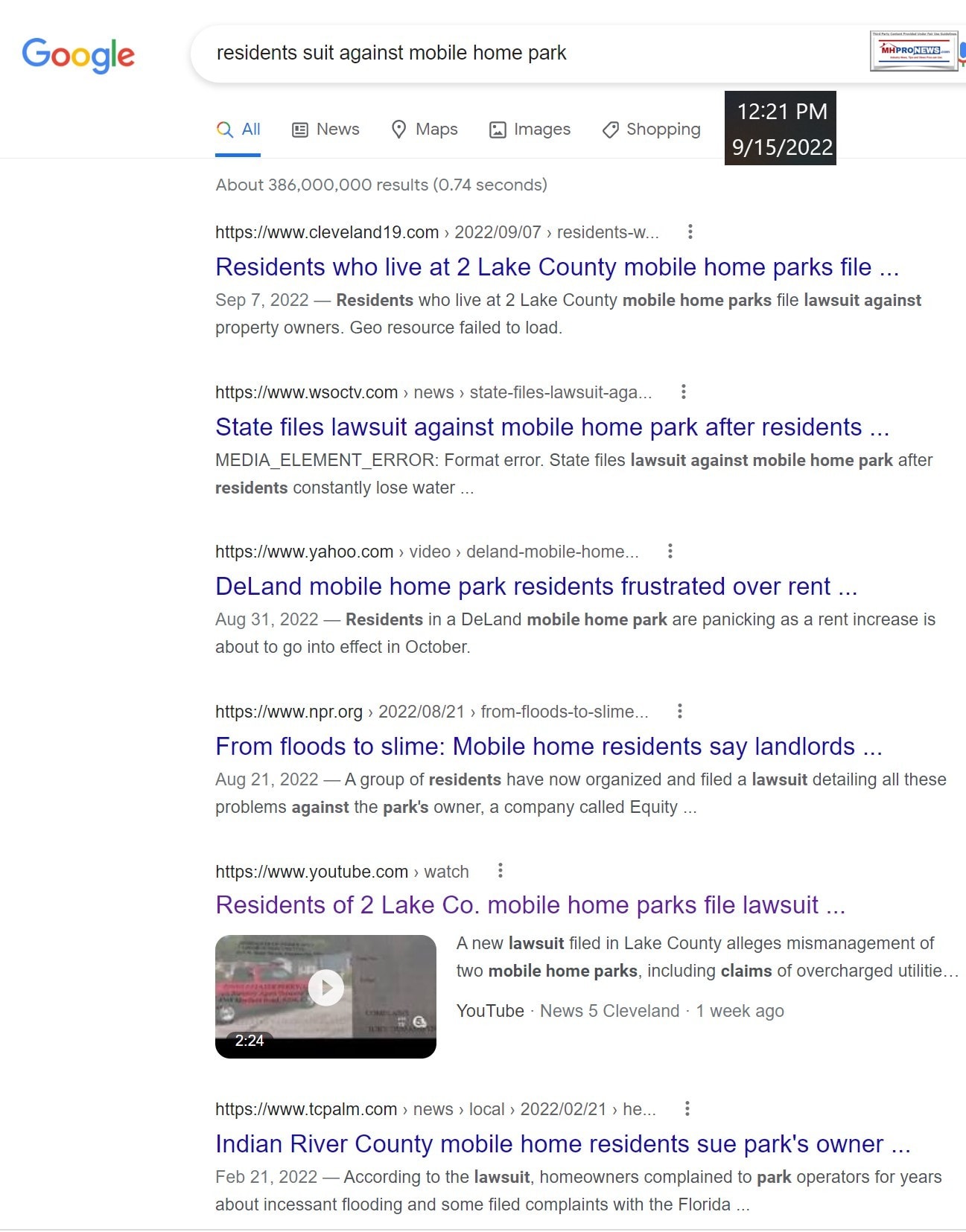
Certainly residents are also complaining to public officials. That is exemplified by articles on a push for legislation like the one linked below.

For movie watchers, what is occurring in MHVille is a bit like the title to the classic “The Usual Suspects.” The same portfolio operators, time and again, are the subject of negative media, actual or proposed legislation, and legal action by public or private attorneys.
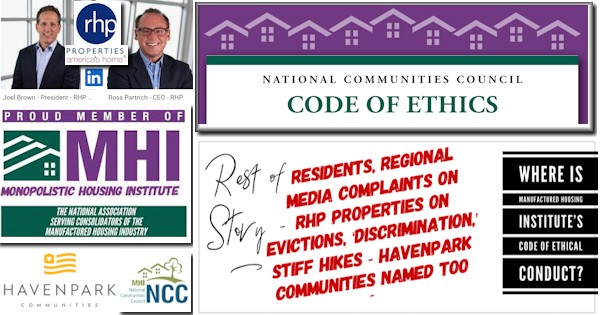
The time to take the Manufactured Housing Institute (MHI) at their word for their so-called Code of Professional Conduct is clearly over. Learn more by checking out the linked reports. There are more industry-specific reports follow with more linked further below.
Immediately below are broader picture items that arguably relate to these woes. ##

Daily Business News Markets Segment
NOTICE: Based on feedback, a modification of our Daily Business News on MHProNews recap of yesterday evening’s market report is provided. It will still include our left (CNN Business) and right (Newsmax) ‘market moving’ headlines. The macro market moves graphics will provide context and comparisons for those invested in or tracking manufactured housing connected equities.
Reminder: several of the graphics on MHProNews can be opened into a larger size. Click the image and follow the prompts in your browser or device to OPEN In a New Window. Then, in several browsers/devices you can click the image and increase the size. Use the escape or back key to return.
Headlines from left-of-center CNN Business – from the evening of 9.14.2022
-

As the 2020 midterms draw closer, Biden and Democrats are attempting various efforts to stir up their base and encourage or ‘buy’ votes, such as through the constitutionally questioned student loan forgiveness plan. Democratic House Speaker Nancy Pelosi previously said the plan would require Congressional approval. What happened to that? Who died and made Biden a ruler by fiat? Joe Biden and some of his admin officials announced inflation is ‘zero percent’ for the prior month. What? Who believes that who is going to the grocery store? It was running at 9.1 percent the previous month, but many believe that the actual rate of inflation is about double that claim. Yes, gas prices have fallen, due to an apparent drop in global demand as an economic slowdown is taking place. The Washington Examiner said that a historic record 88 percent now thinks that the U.S. is on the wrong track under Biden. As the value of the dollar erodes, that impact should be considered when looking at stock market performance. Note: depending on your browser or device, many images in this report can be clicked to expand. Click the image and follow the prompts. To return to this page, use your back key, escape or follow the prompts. What it means for you
- FILE – In this Dec. 20, 2019, file photo, shipping containers are offloaded at a BNSF Railway intermodal facility as the sun sets in Edgerton, Kan. The heads of the nation’s two largest rail unions said Sunday, Sept. 11, 2022 that the freight railroads move to begin delaying some shipments ahead of this week’s looming strike deadline is only an attempt to get shippers to increase the pressure on Congress to intervene and block a work stoppage by imposing a contract on workers.
- Widespread shutdowns, shortages and higher prices. How a rail strike could impact the US
- Railroad strike, and the economic damage it would cause, looms closer
- Major disruption looms for many rail commuters
- Extreme weather could push food prices even higher
- Russian businessman’s body found in latest mysterious death
- The Fed could crash the housing market
- Some good inflation news: Wholesale prices fell in August
- EU proposes $140 billion windfall tax on energy companies
- Opinion: Here’s how to make it easier for workers to find better jobs
- McDonald’s is closing all its UK restaurants Monday for the Queen’s funeral
- Fred Franzia, creator of Trader Joe’s ‘Two Buck Chuck,’ has died
- This new iOS feature could save you from an embarrassing moment
- Starbucks Investor Day 2022-Tryer Center future store
- Inside Starbucks’ plan to speed up service
- NEW YORK, NEW YORK – DECEMBER 08: Traders work on the floor of the New York Stock Exchange (NYSE) on December 08, 2021 in New York City. Following news from the pharmaceutical company Pfizer on the effectiveness of its vaccine against the Omicron COVID-19 variant, the Dow Jones Industrial Average rallied nearly 100 points in morning trading on Wednesday. (Photo by Spencer Platt/Getty Images)
- As markets wobble, buy the stocks that pay you back
- LONDON, ENGLAND – SEPTEMBER 12: Britain's King Charles III looks on during the presentation of Addresses by both Houses of Parliament in Westminster Hall, inside the Palace of Westminster on September 12, 2022 in London, England. The Lord Speaker and the Speaker of the House of Commons presented an Address to His Majesty on behalf of their respective House in Westminster Hall following the death of Her Majesty Queen Elizabeth II. The King replied to the Addresses. Queen Elizabeth II died at Balmoral Castle in Scotland on September 8, 2022, and is succeeded by her eldest son, King Charles III. (Photo by Henry Nicholls-WPA Pool/Getty Images)
- King Charles got the ultimate promotion. 100 staffers could lose their jobs
- MARKETS
- RAIL STRIKE
- FILE- A BNSF rail terminal worker monitors the departure of a freight train, on June 15, 2021, in Galesburg, Ill. The major freight railroads say in a new report Thursday, Sept. 8, 2022, designed to put pressure on unions and Congress, that a strike would cost the economy more than $2 billion a day and disrupt deliveries of all kinds of goods and passenger traffic nationwide if it happens after a key deadline passes next week without a contract agreement.
- Railroad and union officials summoned to DC for high-stakes day
- The clock ticks on a threat to the US economy
-

“In the business world, the rear-view mirror is always clearer than the windshield.” – Warren Buffett. That begs a key question. Why don’t more people LOOK at the rearview mirror so they can learn more about the patterns that influence what’s ahead? Note: depending on your browser or device, many images in this report can be clicked to expand. Click the image and follow the prompts. To return to this page, use your back key, escape or follow the prompts. America feels consequences of looming rail strike
- Amtrak suspends some routes ahead of rail strike
- Looming rail strike could raise gas prices
- CURIOUS CONSUMER
- UNITED STATES – SEPTEMBER 01: Kodak photo printing stations stand inside a CVS store in Wyckoff, New Jersey, U.S., on Tuesday, Sept. 1, 2009. Eastman Kodak Co. is in its second restructuring since 2003.
- Why CVS and Walmart still print photos
- Apple is ditching the physical SIM card
- Dollar General’s new shoppers are unexpected
- Why your car’s speedometer goes up to 160 mph
- Burger King wants you fall in love with the Whopper
Headlines from right-of-center Newsmax 9.14.2022
Our Newsmax headline capture failed last night. MHProNews regrets the error. ##

- NOTE 1: The 3rd chart above includes the Canadian stock, ECN, which purchased Triad Financial Services, a manufactured home industry lender
- NOTE 2: Drew changed its name and trading symbol at the end of 2016 to Lippert (LCII).
- NOTE 3: Deer Valley was largely taken private, say company insiders in a message to MHProNews on 12.15.2020, but there are still some outstanding shares of the stock from the days when it was a publicly traded firm. Thus, there is still periodic activity on DVLY.
- Note 4: some recent or related reports to the equities named above follow.


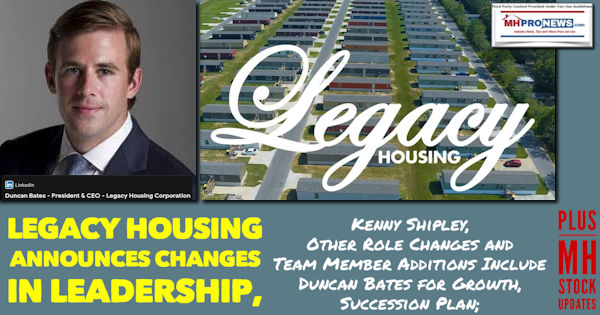
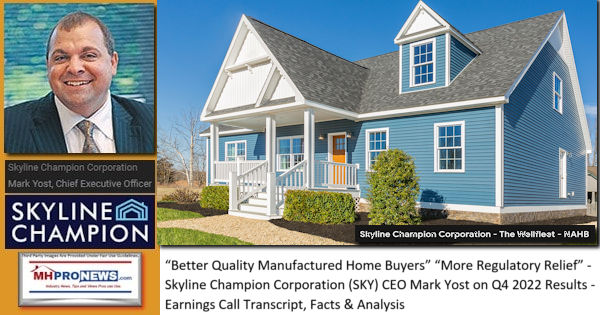

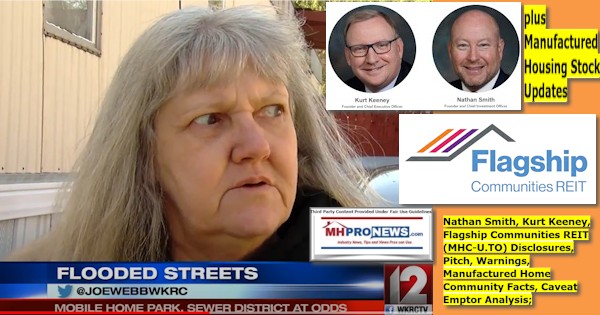
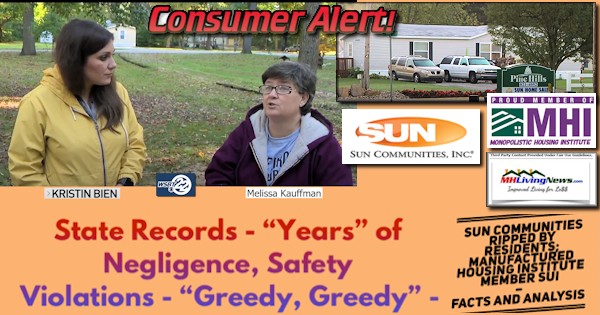

2022 …Berkshire Hathaway is the parent company to Clayton Homes, 21st Mortgage, Vanderbilt Mortgage and other factory-built housing industry suppliers.
· LCI Industries, Patrick, UFPI, and LP each are suppliers to the manufactured housing industry, among others.
· AMG, CG, and TAVFX have investments in manufactured housing related businesses. For insights from third-parties and clients about our publisher, click here.
Disclosure. MHProNews holds no positions in the stocks in this report.
· For expert manufactured housing business development or other professional services, click here.
· To sign up in seconds for our industry leading emailed headline news updates, click here.


That’s a wrap on this installment of “News Through the Lens of Manufactured Homes and Factory-Built Housing” © where “We Provide, You Decide.” © (Affordable housing, manufactured homes, stock, investing, data, metrics, reports, fact-checks, analysis, and commentary. Third-party images or content are provided under fair use guidelines for media.) (See Related Reports, further below. Text/image boxes often are hot-linked to other reports that can be access by clicking on them.)

By L.A. “Tony” Kovach – for MHProNews.
Tony earned a journalism scholarship along with numerous awards in history. There have been several awards and honors and also recognition in manufactured housing. For example, he earned the prestigious Lottinville Award in history from the University of Oklahoma, where he studied history and business management. He’s a managing member and co-founder of LifeStyle Factory Homes, LLC, the parent company to MHProNews, and MHLivingNews.com. This article reflects the LLC’s and/or the writer’s position and may or may not reflect the views of sponsors or supporters.


